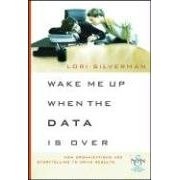At some point, I would like to compile a master bibliography here (if I’m not reinventing the wheel), bringing together my overall bibliography for this blog, as well as previous postings and this new entry with suggestions from Brian McKenzie and Sandy Schuman, who posted them to the Working Stories group. They’re listed in the continuation of this entry. McKenzie’s work is of interest to me because he teaches entrepreneurship, which I also teach. I’m also adding other resources as I come across them.
Boje, D. M. (1991). The storytelling organization: A study of story performance in an office-supply firm. Administrative Science Quarterly, 36(1), 106-126.
Boje, D. M. (1995). Stories of the storytelling organization: A postmodern analysis of disney as “tamara-land”. Academy of Management Journal, 38(4), 997-1035.
Boje, D. M., Luhman, J. T., & Baack, D. E. (1999). Hegemonic stories and encounters between storytelling organizations. Journal of Management Inquiry, 8(4), 340-360.
Organizations through Language by, Susanne Tietze, Laurie Cohen and Gill Musson. London: SAGE Publications, 2003. (Reviewed in Organization Studies 26(2): 311-317, 2005.)
The Resilience of Language, by Susan Goldin-Meadow. Psychology Press, 2003.
The Language Instinct: How the Mind Creates Language, by Steven Pinker. HarperCollins, 2000.
The Symbolic Species: The Co-evolution of Language and the Brain, by Terrence Deacon.New York: W. W. Norton & Company, 1997.
The Narrative Construction of Reality, by Jerome Bruner. Critical Inquiry, 1991, 18(1), 1-21.
Acts of Meaning, by Jerome Bruner. Cambridge, Mass: Harvard Univ. Press, 1990.
Pinker, S. & Bloom, P. (1990). Natural language and natural selection. Behavioral and Brain Sciences 13(4): 707-784.
Human Communication as Narration: Toward a Philosophy of Reason, Value, and Action, by Walter Fisher. Columbia, SC: University of South Carolina, 1987.
Narrative Knowing and the Human Sciences, by Donald E. Polkinghorne. SUNY Press, 1988.
Culture tales: A narrative approach to thinking, cross-cultural psychology, and psychotherapy. by Howard, George S. American Psychologist. 1991 Mar Vol 46(3) 187-197.
Thinking in Story: Preaching in a Post-Literate Age, by Richard Jensen.
The Alphabet Versus the Goddess: The Conflict Between Word and Image
Orality and Literacy: The Technologizing of the Word.
From Seth Kahan:
Walter Fisher’s “Narrative Paradigm” in which, according to a couple of web resources, he indicates that “…narrative is what makes reason and values meaningful. Man becomes Homo Narrans.” These resources also point to his book, Human Communication as Narration: Toward a Philosophy of Reason, Value, and Action (University of South Carolina, Columbia, SC, 1987).


